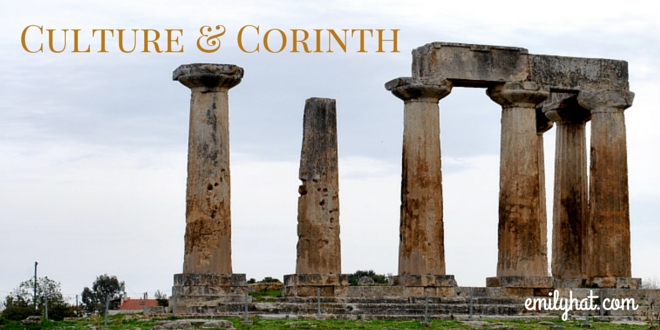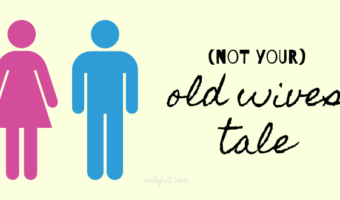On Tuesdays, our ladies class is studying New Testament geography. The past two weeks we’ve been in Corinth; exploring the people and ruins and 1st century culture that permeated the lives of the Corinthian Christians. Since my time studying abroad, I have been fascinated with such subjects, and privileged to take multiple classes and another Steps of Paul tour in the last few years. The thing that always stands out to me in these studies is that we think we’re so different from our first century brothers and sisters.
Because of our modern technology— internet, airplanes, and scientific findings— we think we’re above people in the first century. It is easy to assume we are better off, smarter, and more advanced in every way, when in reality, the struggles in their lives are very similar to the ones in ours.
For example, take the Corinthian Christians. These were a people who were surrounded by a pagan culture. They lived in a wealthy, prospering city. It was full of vast entertainment options (Isthmian games, theater, etc.), all kinds of idolatry (and the sexual immorality and depravity that accompanied such), and ruled by a powerful government. At a glance, it really looks like 21st century America. Spiritual depravity, people ruled by their need for often unwholesome entertainment, and the tolerance of ungodly lifestyles.
And yet, when you read through the epistles Paul wrote to the Corinthian Christians, you see a theme of holiness. You see that, despite their pagan culture, they were commanded to be different. From the outset of 1 Corinthians (verse 2), Paul appeals to their sanctification. In 2 Corinthians 6 and 7, Paul writes commanding them to come out from their culture, to be separate from their culture, and to cleanse themselves from the filthiness of the flesh and spirit.
It was a struggle in Corinth to keep their ungodly culture out of their lives. In 1 Corinthians 3:3, Paul said that they were “still carnal” and behaving like “mere men.” It was a very real and ongoing struggle for the Corinthians to maintain a mindset of Christ-likeness, instead of allowing their pagan background/culture to consume their hearts and overpower their will to act like Jesus.
Reflecting upon these struggles makes the Corinthians that much more real to me. They were real people having to make real, hard choices on who they wanted to be. They had to give up looking like their culture— give up participating in things they had once enjoyed. All for the sake of Christ. And while they struggled, it was never excused. Continuing to behave like the world was never an option.
So why is it today?
In our 21st century climate, we often excuse sin and blame it on culture. We add to our worship because people need to “feel” entertained. We tolerate certain sins because “it’s a different time.” We watch and listen to popular media because “everyone does.” When really, we ought to take a page out of the Corinthians’ lives and come out from our culture, separating ourselves from the world around us. For if it wasn’t ok for them to participate in their culture, why do we think God/Jesus/the Bible would condone Christians today bending to cultural norms?
We live in a different age, sure, but it is still unacceptable for the church as a whole or a Christian individually to allow the world to creep inside. Instead of allowing our culture to change the church and change our minds, we as God’s people should be out in our world, changing the culture. Standing strong in the face of opposition and persecution; unwilling to back down from God’s truths and God’s commands. Will it be easy? Unlikely. But I doubt it was easy for the Corinthians, and they were still called to that standard.
You and I are called to that standard. Just as the Christians in Corinth had to be different from the Jews with their form of religion and the Greeks with their depraved paganism, so we must be different than the world around us. After all, we are the church— the called out ones. Come out and be separate from the culture. Even if it means being drastically different. Especially when it means being drastically different. How else will the world know Who we belong to?



